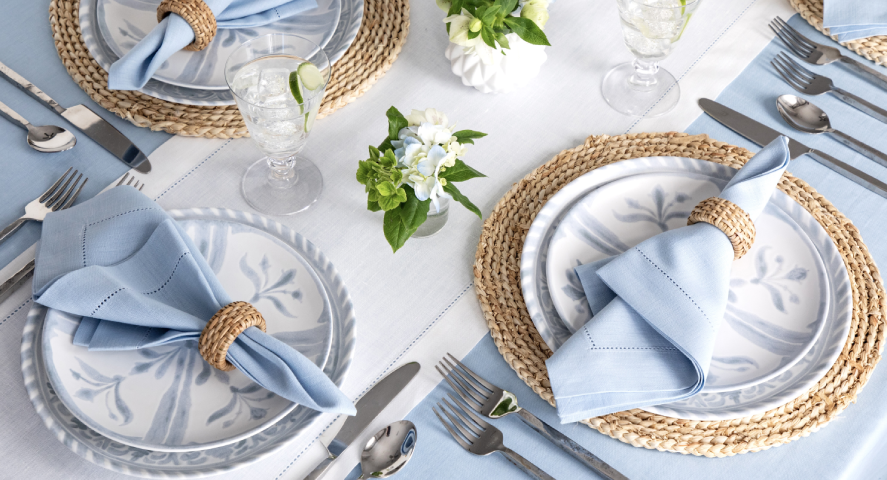When it comes to, linen and cotton both are wonderful and durable materials, but very different when it comes to caring for them to ensure longevity and durability.
Actually, linen has a bit of a head start in that sense because the fabric is produced by weaving together fibres taken from the flax plant. This makes it incredibly long-lasting and, at the same time, breathable.
Or, as fabric expert Mary Leverette @AboutLaundry puts it: “Linen clothes [and sheets] bring to mind the hot, humid tropics and the need for something lightweight that helps perspiration evaporate quickly. Think of Katherine Hepburn in "The African Queen" or Meryl Streep in "Out of Africa.”
Cotton sheets are made by weaving the ‘bolls’ of a cotton plant into fine fibres to produce a soft, silky effect. Cotton fibres are finer than those of linen so the sheets themselves are a little more delicate and have to be handled with extra care.
Washing your cotton and linen sheets
Wash cotton sheets on their own in the machine so they don’t get ripped by a zip or eyelets from fasteners, etc. They should also be washed with other similar colours, otherwise they can tend to look a little ‘grey.’
Don’t worry about washing sheets in water that is too hot. With both cotton and linen, it’s possible to wash in cool water using a little detergent. Avoid the ‘quick wash’ setting though, as this rarely gives the detergent time to get going. To get rid of stains, rub a little detergent on before you put them into the machine.
Actually, if you have linen sheets and there’s a mark on them, let them soak in a bucket with detergent for a few hours before putting them into the machine. They tend to need more steeping when stained.
How age affects both cotton and linen
Buy cotton with a high thread count and you can be sure your sheets will be soft the minute you pull them out of the packaging. They’ll feel lovely and for some time afterwards. But, they will eventually lose that softness over time (quicker, if you insist on washing them in hot water). Fabric conditioners can help by repairing the fibres in the material and coating them against a too-hot iron.
Linen will give you pretty much the opposite experience in that they are a little ‘crinkly’ when you first remove them from the packaging, but they actually soften over time. Fabric conditioners can help with softening them sooner if that’s what you prefer.
Another way to soften your linen sooner – and to ensure it stays beautifully soft without having to resort to using fabric conditioner – is to air dry them. That means taking them out of the dryer around 20 minutes prior to the end of the wash. They’ll still be damp so obviously can’t be put away. Instead, hang them out on the line. Not only will they be softer, but also have that lovely, fresh ‘outdoors’ smell.
















